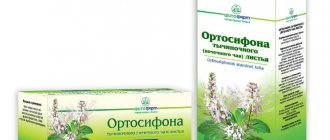Being in an “interesting situation”, many women think about their diet: what foods can be eaten and which cannot. After reading our article, you will find out whether pregnant women can eat rice, its benefits and harms.
- What are the benefits of rice for a pregnant woman?
- What harm could it do?
- How to store cereals at home
- Precautionary measures
- What can be prepared and what goes with it
Can pregnant women eat rice?
Proper nutrition of the expectant mother greatly affects her well-being and the healthy development of the fetus.
Therefore, even food products that were loved before pregnancy raise many questions among pregnant women: is it possible, how much, when? How do pregnancy and rice go together? What should a woman know about the dangers of rice during pregnancy? How can it be useful, besides nutrition?
The benefits and harms of rice during pregnancy
Rice occupies the palm in the cuisine of many countries. The most important qualities of the product are its high nutritional value and its excellent compatibility with meat and poultry, fish and vegetables, seafood and fruits. And this is important for the nutrition of a pregnant woman.
The calorie content of boiled rice is 116 kilocalories per 100 grams. The product not only replenishes the body’s energy costs, but also serves as a source of substances useful during pregnancy. So, 100 grams of cereal contains 6.4 grams of proteins, 72.5 carbohydrates, 0.9 fats. Rice is rich in minerals. This is potassium, of which there is about 70 mg in the above portion, calcium - 30 mg, magnesium - 38 mg, phosphorus - 104 mg.
By eating this product, you don’t have to worry about excess weight gain, which often affects women in the third trimester. The low calorie content of rice allows you to combine it with meat, fish, and vegetables, that is, eat satisfyingly and without harm to your figure, and therefore to your health. It is not for nothing that in Asian countries rice has long become the basis of national cuisine.
B vitamins in cereals help convert nutrients into energy that the expectant mother needs for health. This transformation strengthens the nervous system, improves the condition of nails, skin, and hair. Lecithin in rice increases brain activity, which is very important for the nutrition of student mothers or those engaged in mental activity. Magnesium in cereals also helps with this.
Thanks to the oligosaccharides in rice, intestinal function is normalized, which can be useful for pregnant women who experience stool disorders. The enveloping properties of rice grains help fight such disorders. Eating rice also helps to cope with gastritis. And the content of calcium and phosphorus in it contributes to the formation of the skeletal system of the unborn baby and prevents the leaching of calcium from the woman’s teeth. Potassium, contained in large quantities in rice, supports the heart and has a beneficial effect on blood pressure, normalizing it. This applies to pregnant women who experience pressure surges in the third trimester.
By the way, it will not be superfluous to know that the amount of vitamins and minerals in rice directly depends on the degree of its processing. The higher it is, the less substances useful for the nutrition of the expectant mother remain in the rice.
Nutritionists are confident that the positive properties of the product relate to brown brown rice, and the harm of cereals in general is associated only with modern processing technologies. The rice husk, which is preserved on brown rice, contains 80% of the mineral components and carbohydrates that are beneficial to the human body. And the harm of cereals, which are presented in purified form in our supermarkets, is that they are rich in carbohydrates, which can turn into fat and contribute to excess weight gain.
Possible uses of rice during pregnancy
Expectant mothers often suffer from colds, and the use of medications from the pharmacy is strictly contraindicated for them. In this case, rice can be used as a treatment for sore throat. Inflammation of the tonsils will perfectly relieve rice cream. To prepare it, you need to take half a glass of rice, rinse it well, changing the water several times, and cook for about an hour. After this, you need to let it cool a little and squeeze out the cream through gauze. It is recommended to use it several times a day. It perfectly coats a sore throat and eases the difficulty of swallowing. This remedy will also be useful for exacerbations of gastritis in the expectant mother. In addition, this cream gives strength.
Rice treatment can also help those women who have pigmentation on their face. To do this, add lemon juice to the cooled rice water and soak gauze with slits for the eyes with this mixture. Keep this compress on your face for 15 minutes.
This recipe will help a pregnant woman take care of youthful and healthy skin. Fry 100 grams of rice in olive oil and then boil it until tender. After straining, such rice can be eaten, and the strained water is used to smooth out wrinkles by wetting a cotton swab and wiping cleansed facial skin.
What can be prepared and what goes with it
Rice is one of the few grains that goes perfectly together
with meat, and green beans. All ingredients must be cut into 1x1 cm cubes. Mix the vegetables with boiled rice and simmer for another 5 minutes. It also doesn't hurt to add butter and salt.
Did you know?
Rice is the national grain of Japan.
It is consumed for breakfast, lunch and dinner. It is an integral ingredient in about 500 thousand dishes. Expectant mothers are interested in the question: is it possible for pregnant women to pilaf
. You can prepare this dish, but you should use lean meat - for example, chicken fillet, and not overuse a lot of hot spices. Pregnant women, like no one else, need a healthy diet, as their body needs nutrients in large quantities. By following some tips and not overindulging in frequent consumption of the same foods, you can delight yourself with delicious dishes.
Oatmeal is one of the healthy cereals that is included in the list of the 12 best foods recommended for consumption during pregnancy. Therefore, if you consume this tasty cereal daily, you will be guaranteed a great start to the day and good health. Moreover, you can prepare many delicious and healthy dishes from oatmeal. We will tell you about the benefits and harms of oatmeal during pregnancy, as well as its use in addition to cooking in our publication today.
Rice during pregnancy
11/03/2014 Nutrition during pregnancy If the expectant mother eats right, the likelihood that she will give birth to a healthy and strong baby increases significantly. Many pregnant women often wonder what and in what quantities can be eaten in their position, so as not to overload the body, and, at the same time, not to infringe on the child’s need for vitamins and other nutrients. If you love rice and are wondering how often you can eat rice during pregnancy, then this article is for you.
The benefits and harms of rice during pregnancy
Rice is quite common in different countries. And such a dish will surprise few people. It is very nutritious and goes well not only with meat, fish and seafood, but also with fruits and various vegetables. Rice contains proteins, carbohydrates, fats, potassium, calcium, magnesium, and phosphorus. It saturates the body with energy, but is not stored as fat. It is often used for dietary nutrition, therefore, its benefits for the body are beyond doubt. The presence of B vitamins in the cereal has a good effect on the beauty of the hair, nails and skin of the expectant mother, and the presence of lecithin activates the brain, so if you are forced to work long and hard mentally, eating rice will benefit you.
How to store cereals at home
In order for rice to remain edible for a long time, you should follow simple rules.
:
- ensure that optimal temperature (+5...+15 °C) and humidity (not higher than 70%, and ideally 60%) are maintained;
- do not allow sunlight to fall on the cereal;
- store the cereal in a closed jar to prevent bugs and other larvae from getting in.
Rice that was purchased in a supermarket is recommended to be consumed within the next few months, although, subject to storage conditions, it can last for more than a year.
To prevent bugs from getting into the cereal, put cloves, bay leaves, hot peppers, dried zest or chestnuts in a jar.
To protect rice from becoming musty, it used to be stored in a linen bag, which allowed the grain to “breathe.” Before pouring cereal into a bag, it should be boiled in a strong saline solution - this will prevent mold from developing.
Rice during pregnancy
Rice has been recognized as a source of essential nutrients for the body in many Asian countries. One serving of dishes such as porridge or pilaf contains a lot of vitamins and beneficial microelements that are necessary for the harmonious development of a child.
Composition of the product
Rice contains the following beneficial substances:
The product is also rich in B vitamins, which take an active part in the metabolic processes occurring in the body of a pregnant woman.
Rice contains quite a few calories, so it is ideal for dietary nutrition. Pregnant women who have intestinal problems should definitely pay attention to this product. Rice helps remove toxic substances and waste from the body. The product does not contain gluten. Therefore, rice can be eaten by women prone to allergic reactions.
You should not forget about the habit of regularly preparing rice dishes even after the birth of your baby. Due to the absence of gluten in the product, it can be considered a dish safe for the health of a newborn. Rice does not provoke the appearance of an allergic rash in the baby.
The product contains quite a lot of lecithin. This substance activates brain activity and stimulates the creative process. Rice helps improve memory, improves concentration, and allows a pregnant woman to focus on some task that is important to her.
Eating rice during pregnancy
Rice porridge provides a pregnant woman with a powerful charge of positive energy. In addition, the fair sex can prepare delicious pilaf. Fatty meats should not be added to the dish. Rice goes well with a variety of sauces. But a pregnant woman should be careful. Hot sauces can cause digestive upset in a pregnant woman.
Rice goes well with the following foods:
You can prepare a lot of delicious dishes from rice:
- stuffed pepper;
- rice pudding topped with strawberry sauce;
- porridge with the addition of cottage cheese, honey and apple;
- tomato soup with rice.
The beneficial properties of rice are known throughout the world. Residents of China make noodles, delicious flatbreads and wine from it. In Japan, rice is actively added to sushi. In Italy they make risotto based on it, in Spain they make paella, in England they make pudding.
Rice in the treatment of various diseases
Rice is not only a source of nutrients. If a pregnant woman has a sore throat, you can prepare a special cream consisting of water and rice. It carefully envelops the tonsils, relieves pain in the throat, and eliminates the inflammatory process. Special rice cream cannot replace medications prescribed by a doctor. It is only an auxiliary remedy that perfectly eliminates the symptoms of the disease.
The cream should be prepared as follows:
- You need to take half a glass of rice.
- It must be rinsed thoroughly, changing the water twice.
- Rice needs to be cooked for 60 minutes.
- After this, it is cooled and the cream is carefully squeezed out through gauze.
The resulting cream is consumed 2-3 times a day.
Use of rice for cosmetic purposes
While waiting for a baby, many women experience a variety of skin problems:
- allergic rash;
- rashes on the face;
- dryness;
- irritation.
Skin problems can overshadow the serene joy of motherhood. If acne or irritation occurs, wash your face with rice water. The natural product is absolutely safe for children. Rice water should be wiped over the face and neck area twice a day.
The product can also help pregnant women who have age spots on their faces. To do this, add a small amount of lemon juice to the pre-cooled rice broth. The resulting liquid should be soaked into gauze, in which slits for the eyes are carefully made. The compress should be kept on the face for 20 minutes.
Benefits of undercooked rice
Raw, or undercooked rice as it is also called, is a real benefit for those who decide to lose weight. Therefore, it is actively eaten by people who adhere to a healthy diet.
Undercooked rice is strictly contraindicated for pregnant and lactating women. This product does not have sufficient nutritional value and can lead to the most unpleasant consequences. Also, you should not eat undercooked rice if you have diabetes.
Undercooked rice removes waste, toxins and salts from the body. And if rice porridge is harmful to your figure, then raw cereal, on the contrary, leads to weight loss.
Doctors also note the anthelmintic effect of rice. One cannot fail to note its positive effect on skin, hair and nails.
This diet can be used after you finish breastfeeding and decide to regain your figure. Its main advantage is that during the day you can eat any food in moderation, limiting only sweets and starchy foods.
This rice is not even boiled. To prepare it, you need to rinse the rice in the evening and soak it with water, in the morning you drain the water, rinse the rice and soak it in water again. This procedure must be carried out within five days. In this case, the number of tablespoons of raw rice should be equal to your age.
After the rice is cooked, you need to eat 1 tbsp every morning on an empty stomach. spoons of rice without washing it down with water. The first meal after this should be no earlier than 4 hours later.
Rice during pregnancy: moving towards a healthy diet
Two welcome lines on the test will most likely make you reconsider your diet and raise many questions. The usual menu will have to be analyzed for usefulness and safety: after all, the full formation of a little man requires huge reserves of vitamins and microelements.
Cereals are one of the main components of a healthy diet. How often can you eat rice during pregnancy? How is it valuable or harmful for the expectant mother and baby? Do all varieties of the miracle cereal have the same nutritional value?
Rice during pregnancy
Rice is a cereal common throughout the world. It is impossible to list all the variety of recipes made from this cereal. It has high nutritional value and excellent compatibility with almost all foods: meat, fish, seafood, vegetables, berries, fruits.
Rice dishes are filled with energy and, when properly prepared, do not accumulate in fat, which is why the product is considered dietary. The calorie content of boiled grain is only 116 kcal per 100 grams. If you experience intense weight gain, your doctor may even recommend rice fasting days.
During pregnancy, you can eat rice not only as food, but also use it as a medicine and cosmetic. Try the following recommendations:
- To treat a sore throat, cook half a glass of rice for about an hour, cool, strain and lubricate the tonsils with it. Thanks to its astringent and enveloping properties, the same remedy can treat gastritis (
Precautionary measures
As stated above, rice has no special contraindications. However, if you are diagnosed with colitis, you should avoid eating grains. You also need to remember that by eating white polished rice, you can quickly gain weight, so you shouldn’t indulge yourself with porridge too often. Rice porridge will be useful during pregnancy, but you should not put a lot of oil in it - it contains cholesterol.
Did you know?
Every year, the world's inhabitants eat about 700 million tons of rice. In order to grow such a quantity of cereal crops, about 1 billion people are involved.
Rice during pregnancy
Being in an “interesting situation”, many women think about their diet: what foods can be eaten and which cannot. After reading our article, you will find out whether pregnant women can eat rice, its benefits and harms.
What are the benefits of rice for a pregnant woman?
Due to the high content of proteins, fats, fast and slow carbohydrates in the cereal, as well as potassium, calcium, magnesium, phosphorus, B vitamins and folic acid, it is a valuable product for a pregnant woman.
The beneficial properties of cereal include:
- has a positive effect on the nervous system: it will relieve you of mood swings and unstable emotional state;
- due to the presence of potassium and sodium salts in the composition, water metabolism is improved, so we can safely say that rice should be consumed for edema during pregnancy;
- the cereal does not contain gluten, a protein that can cause allergic reactions;
- will help in the fight against diarrhea, heartburn, poisoning;
- has a mild diuretic and cleansing effect;
- helps increase mental activity, as it contains lecithin and magnesium;
- thanks to the calcium and phosphorus included in the composition, the skeletal system of the unborn baby and mother is strengthened;
- improves the condition of hair, nails, skin;
- thanks to potassium, heart function improves and blood pressure normalizes;
- the function of the circulatory system improves, metabolism improves;
- helps improve immunity.
What harm could it do?
Despite the great benefits of rice for pregnant women, it is worth paying attention to some contraindications and points :
- It is not advisable to use it if you have been diagnosed with diabetes;
- if you are rapidly gaining weight, it is better to limit your intake of cereals, since due to the presence of empty carbohydrates in its composition, fat will be quickly deposited;
- If you often have constipation, you should also avoid this product, as it has a constipating effect.
Before consuming dishes made from this grain, it is worth assessing its effect on your body and on the body of your unborn baby. There are no special prohibitions for consuming this product during pregnancy, but you should still be careful when eating grains.
Which rice to choose when purchasing
The choice of cereals should be given special attention. It is important to know that the less processing a product has undergone, the healthier it is. Therefore, nutritionists recommend purchasing brown brown rice . Its husk contains 80% of the beneficial components and carbohydrates that the human body needs. Unfortunately, already purified varieties are more often presented in stores, but, if desired, brown cereal can be found in specialized stores.
When purchasing, be sure to pay attention to the packaging - it should be transparent (so you can see the quality of the grains) and sealed. Also check the production date and expiration date of the cereal.
How to store cereals at home
In order for rice to remain suitable for consumption for a long time, you should follow simple rules :
- ensure that optimal temperature (+5. +15 °C) and humidity (not higher than 70%, and ideally 60%) are maintained;
- do not allow sunlight to fall on the cereal;
- store the cereal in a closed jar to prevent bugs and other larvae from getting in.
Rice that was purchased in a supermarket is recommended to be consumed within the next few months, although, subject to storage conditions, it can last for more than a year.
To prevent bugs from getting into the cereal, place garlic cloves, bay leaves, hot peppers, dried lemon zest or chestnuts in a jar.
To protect rice from becoming musty, it used to be stored in a linen bag, which allowed the grain to “breathe.” Before pouring cereal into a bag, it should be boiled in a strong saline solution - this will prevent mold from developing.
Precautionary measures
As stated above, rice has no special contraindications. However, if you are diagnosed with colitis, you should avoid eating grains. You also need to remember that by eating white polished rice, you can quickly gain weight, so you shouldn’t indulge yourself with porridge too often. Rice porridge will be useful during pregnancy, but you should not put a lot of oil in it - it contains cholesterol.
What can be prepared and what goes with it
Rice is one of the few grains that goes perfectly with meat, fish, seafood, vegetables, berries and fruits.
Porridge will have a wonderful taste in milk soup . To do this, you need to pour milk (fat content does not matter) into pre-cooked cereal, then bring to a boil, add salt, add sugar and butter if desired. You can also add carrots to milk soup.
Boiled rice is an excellent side dish. But if you cook it with vegetables, you get a very tasty dish. To do this, you need to separately stew the carrots, onions, bell peppers and green beans. All ingredients must be cut into 1x1 cm cubes. Mix the vegetables with boiled rice and simmer for another 5 minutes. It also doesn't hurt to add butter and salt.
Expectant mothers are interested in the question: is it possible for pregnant women to eat pilaf ? You can prepare this dish, but you should use lean meat - for example, chicken fillet, and not overuse a lot of hot spices. Pregnant women, like no one else, need a healthy diet, as their body needs nutrients in large quantities. By following some tips and not overindulging in frequent consumption of the same foods, you can delight yourself with delicious dishes.
What harm could it do?
Despite the great benefits of rice for pregnant women, it is worth paying attention to some contraindications and points :
- It is not advisable to use it if you have been diagnosed with diabetes;
- if you are rapidly gaining weight, it is better to limit your intake of cereals, since due to the presence of empty carbohydrates in its composition, fat will be quickly deposited;
- If you often have constipation, you should also avoid this product, as it has a constipating effect.
Find out why oatmeal and peas are beneficial and harmful to a pregnant woman’s body, as well as how you can prepare them and what to combine them with.
Before consuming dishes made from this grain, it is worth assessing its effect on your body and on the body of your unborn baby. There are no special prohibitions for consuming this product during pregnancy, but you should still be careful when eating grains.











